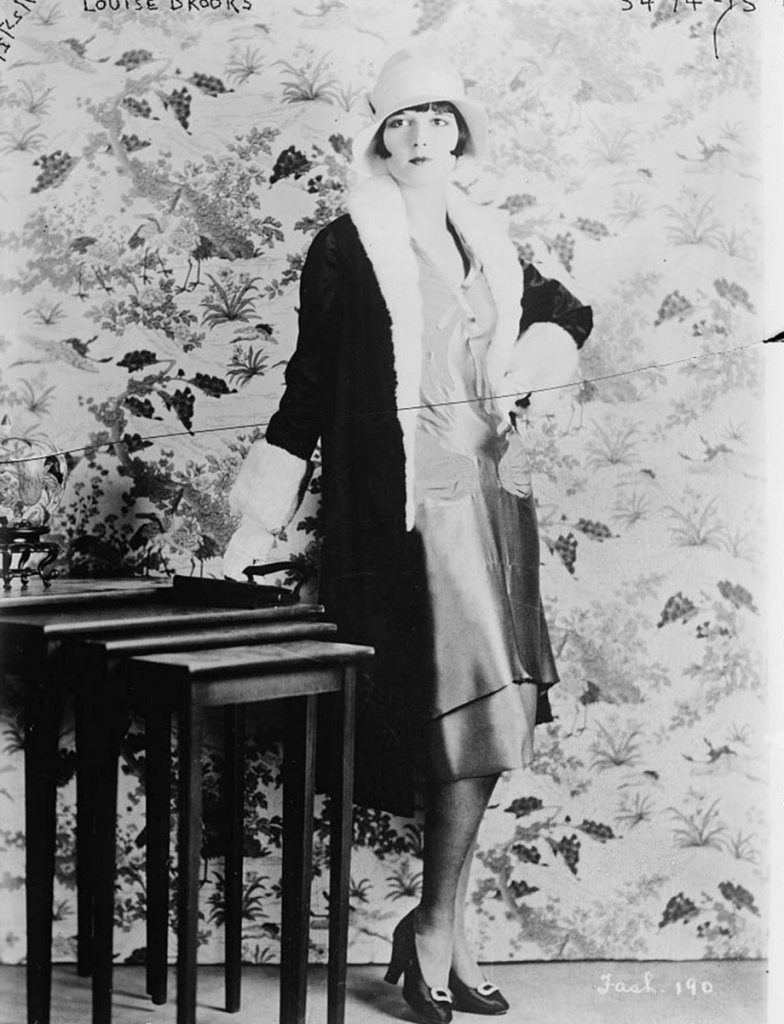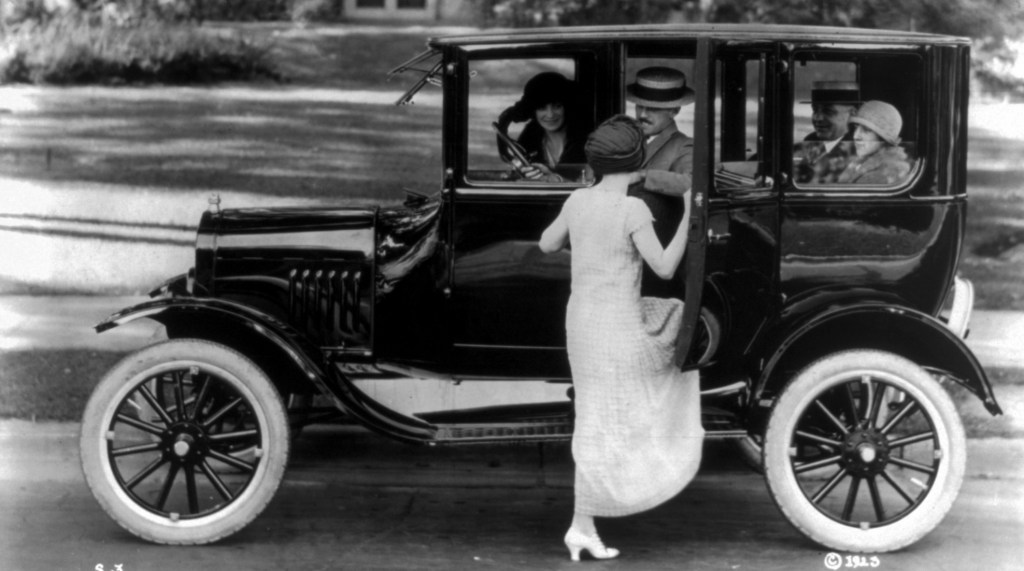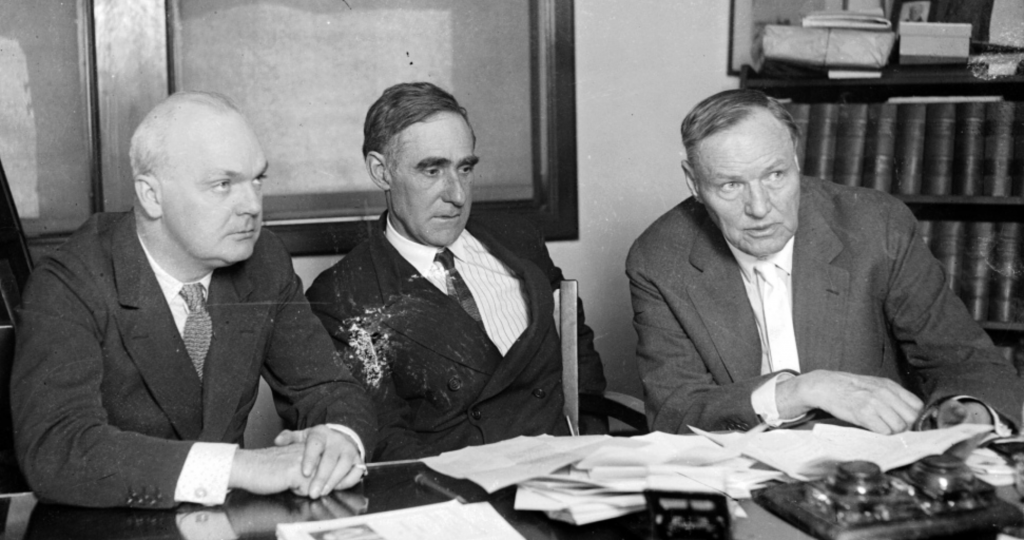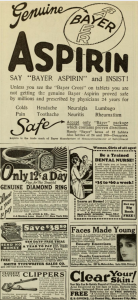Which dynamic more thoroughly defined the 1920s: fast-paced social change or fierce political reaction?
American Yawp, Chapter 22: The New Era
- I. Introduction
- II. Republican White House, 1921-1933
- III. Culture of Consumption
- IV. Culture of Escape
- V. “The New Woman”
- VI. “The New Negro”
- VII. Culture War
- VIII. Fundamentalist Christianity
- IX. Rebirth of the Ku Klux Klan (KKK)
- X. Conclusion
- XI. Primary Sources
- XII. Reference Material
Image Gateway
Discussion Question
- The “flapper style” of the 1920s certainly represented change, but what kind of change and how revolutionary was this cultural shift?
Overview
Russell Baker’s Pulitzer Prizer-winning memoir of his Depression era childhood, Growing Up (1981) offers a wonderful gateway to study the period between 1900 and 1945. Baker’s account is especially insightful for understanding the the role of women in the 1920s and the 1930s from a child’s perspective. Baker grew up in a household dominated by strong women who nonetheless struggled against enormous cultural and economic obstacles as they tried to protect their families.
American Dreams
 “Fifty years ago parents still asked boys if they wanted to grow up to be President, and asked it not jokingly but seriously. Many parents who were hardly more than paupers still believed their sons could do it. Abraham Lincoln had done it. We were only sixty-five years from Lincoln. Many a grandfather who walked among us could remember Lincoln’s time. Men of grandfatherly age were the worst for asking if you wanted to grow up to be President. A surprising number of little boys said yes and meant it.” (Growing Up, chapter 2)
“Fifty years ago parents still asked boys if they wanted to grow up to be President, and asked it not jokingly but seriously. Many parents who were hardly more than paupers still believed their sons could do it. Abraham Lincoln had done it. We were only sixty-five years from Lincoln. Many a grandfather who walked among us could remember Lincoln’s time. Men of grandfatherly age were the worst for asking if you wanted to grow up to be President. A surprising number of little boys said yes and meant it.” (Growing Up, chapter 2)
New Women and New Attitudes
Lancaster, VA: “A girl of sixteen [my mother] denounced [sexism] while arguing the case for women’s suffrage in her 1913 high school debate. “Women do not ask to be placed on a throne as goddess or queen,” she said. “They are content to be equal. At present they are only half-citizens. Is the right to vote to be not a matter of right or justice, but a mere matter of pantaloons?” (Growing Up, chapter 3)
Washington, DC: “In March of 1925 [Ida Rebecca Baker]’s son [Benny] and his schoolteacher [Lucy Robinson] went discreetly down to Washington to be married. They were both twenty-seven years old. I was born six months later and immediately became the darling of my doting grandmother. With all her love for me, however, she never forgave my mother, and my mother returned the scorn measure for measure.” (Growing Up, chapter 3)
Rural Life
Morrisonville, VA: “I was enjoying the luxuries of a rustic nineteenth-century boyhood, but for the women Morrisonville had few rewards. Both my mother and grandmother kept house very much as women did before the Civil War. It was astonishing that they had any energy left, after a day’s work, to nourish their mutual disdain. Their lives were hard, endless, dirty labor. They had no electricity, gas, plumbing, or central heating. No refrigerator, no radio, no telephone, no automatic laundry, no vacuum cleaner. Lacking indoor toilets, they had to empty, scour, and fumigate each morning the noisome slop jars which sat in bedrooms during the night. For baths, laundry, and dishwashing, they hauled buckets of water from a spring at the foot of a hill. To heat it, they chopped kindling to fire wood stoves. They boiled laundry in tubs, scrubbed it on washboards until knuckles were raw, and wrung it out by hand. Ironing was a business of lifting heavy metal weights heated on the stove top. They scrubbed floors on hands and knees, thrashed rugs with carpet beaters, killed and plucked their own chickens, baked bread and pastries, grew and canned their own vegetables, patched the family’s clothing on treadle-operated sewing machines, deloused the chicken coops, preserved fruits, picked potato bugs and tomato worms to protect their garden crop, darned stockings, made jelly and relishes, rose before the men to start the stove for breakfast and pack lunch pails, polished chimneys of kerosene lamps, and even found time to tend to the geraniums, hollyhocks, nasturtiums, dahlias, and peonies that grew around every house. By the end of a summer day a Morrisonville woman had toiled like a serf.” (Growing Up, chapter 3)
Urbanization
“Brunswick was a huge railway center on the B&O Main Line, which linked the Atlantic coast to Chicago and midwestern steel centers. Approaching it was almost unbearably thrilling. You crossed an endless, rickety cantilever bridge after pausing on the Virginia bank to pay a one-dollar toll…Three of my uncles lived there: Uncle Tom, Uncle Harvey, and Uncle Lewis. They were expected to sit on Ida Rebecca’s porch, too, but only on Sundays. As citizens of Brunswick, they had crossed over into a world of Byzantine splendor. Brunswick had a department store and a movie house. There was a street stretching for two or three blocks lined with stores, including a drug store where you could sit down at a round marble top table and have somebody bring you an ice-cream soda. There were whole blocks of houses jammed one right up against another, the blocks laid out in a grid pattern on hills steep enough to tire a mountain goat.” (Growing Up, chapter 3)




